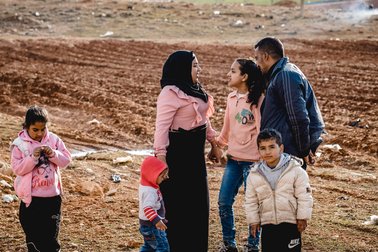Knowledge Hub
-
08/12/2022
Effectiveness of a brief group behavioural intervention on psychological distress in young adolescent Syrian refugees: A randomised controlled trial
This study evaluated the effectiveness of a nonspecialist delivered group-based intervention (Early Adolescent Skills for Emotions (EASE)) to improve young adolescents’ mental health. In this single-blind, parallel, controlled trial, Syrian refugees aged 10 to 14 years in Jordan were identified through screening of psychological distress as defined by scores ≥15 on the Paediatric Symptom Scale. Participants were randomised to either EASE or enhanced usual care (EUC) involving referral to local psychosocial services (on a 1:1.6 ratio). It found that the intervention led to reduced internalising problems in young refugee adolescents and was associated with reduced distress and less inconsistent disciplinary parenting in caregivers. Overall, this intervention has the potential as a scalable intervention to mitigate young adolescents’ emotional difficulties in low- and middle income countries.
Read more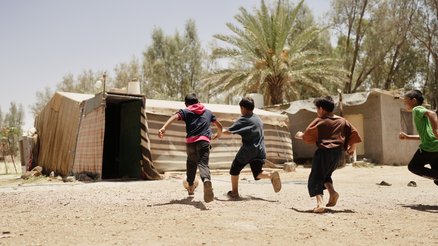
-
10/08/2021
Proactive detection of people in need of mental healthcare: accuracy of the community case detection tool among children, adolescents and families in Sri Lanka
This study evaluates the accuracy of a new tool, the Community Case Detection Tool (CCDT). The CCDT uses illustrated vignettes, two questions and a simple decision algorithm to support proactive community-level detection of children, adolescents and families in need of mental healthcare to improve help-seeking. Trusted and respected community members in the Eastern Province of Sri Lanka used the CCDT in their daily routine. Children and families detected as potentially in need of mental healthcare based on utilizing the CCDT (N = 157, aged 6–18 years) were invited for a clinical interview by a mental health counsellor using the Mini-International Neuropsychiatric Interview for Children and Adolescents (MINI-KID). Results showed 7 out of 10 children and families detected by community members using the CCDT were confirmed to be in need for treatment.
Read more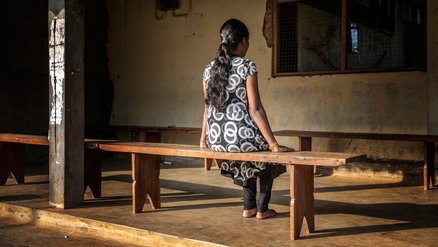
-
05/31/2021
Effectiveness of a technology-assisted, family volunteers delivered, brief, multicomponent parents’ skills training intervention for children with developmental disorders in rural Pakistan: a cluster randomized controlled trial
This study adapted the World Health Organization’s mental health Gap-Intervention Guidelines (mhGAP-IG) developmental disorders module into a tablet-based android application to train caregivers of children with developmental disorders. Through doing so, it aimed to evaluate the effectiveness of this technology-assisted, family volunteers delivered, parents’ skills training intervention to improve functioning in children with developmental disorders in a rural community of Rawalpindi, Pakistan. In the relatively short intervention period of 6 months, no improvement in child functioning was observed; but, there were significant improvements in caregivers’ health related quality of life. Further trials with a longer follow-up are recommended to evaluate the impact of intervention.
Read more
-
12/01/2021
Developing the Group Facilitation Assessment of Competencies Tool for Group-Based Mental Health and Psychosocial Support Interventions in Humanitarian and Low-Resource Settings
In humanitarian settings, mental health and psychosocial support services (MHPSS) are often delivered in group-based formats. Group interventions enable providers to reach more individuals when resources and technical expertise are limited. Group-based programs also foster social support, empathy, and collective problem-solving among the participants. To remedy the current lack of tools available to assess the group facilitation competencies of individuals delivering group-based MHPSS, this paper aims to illustrate the process of developing such a tool. Through this process, the Group Facilitation Assessment of Competencies (GroupACT) Tool is developed. GroupACT is a structured observational tool for assessing these competencies during standardized role-plays with actor clients, or in vivo during the delivery of group sessions with actual clients. The article is concluded with guidance for using the GroupACT to assess facilitators’ competencies in providing group-based MHPSS in the health, education, protection, and other sectors in humanitarian settings.
Read more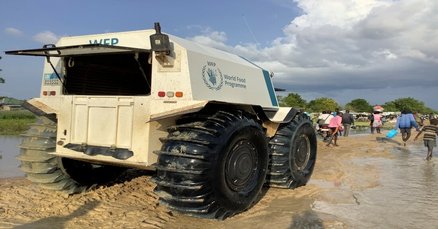
-
03/22/2022
Health system governance in settings with conflict-affected populations: a systematic review
Health system governance has been recognized as critical to strengthening healthcare responses in settings with conflict-affected populations. The aim of this review was to examine existing evidence on health system governance in settings with conflict-affected populations globally. The specific objectives were (1) to describe the characteristics of the eligible studies; (2) to describe the principles of health system governance; (3) to examine evidence on barriers and facilitators for stronger health system governance; and (4) to analyse the quality of available evidence. Overall, this review highlights the need for more theoretically informed empirical research on health system governance in settings with conflict-affected populations that draws on existing frameworks for governance.
Read more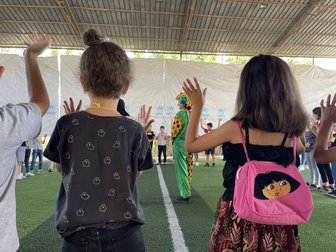
-
03/01/2022
A Proof-of-Concept Study of Can’t Wait to Learn: A Digital Game-Based Learning Program for Out-of-School Children in Lebanon
Evaluations of education technology (ed tech) interventions in humanitarian settings are scarce. This paper present a proof-of-concept study of Can’t Wait to Learn (CTWL), a digital game-based learning program that combines an experiential, active learning design with meaningful, competency-appropriate, and contextually relevant content. Here, the feasibility is assessed using the CWTL program to address the current education gap in Lebanon by implementing its mathematics component in basic literacy and numeracy classes with out-of-school children ages 10-14. Findings support the feasibility of using ed tech programs to meet the needs of out-of-school children, as the study saw significant improvements in numeracy, psychological symptoms, and self-esteem; positive reported experiences with the program; increased motivation among the children; and overall ease of implementation.
Read more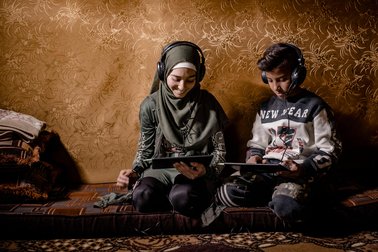
-
04/18/2022
Family systemic psychosocial support for at-risk adolescents in Lebanon: study protocol for a multi-site randomised controlled trial
This study identifies a scarcity of research on effective approaches for preventing and treating psychological distress in this population, particularly in humanitarian settings. Through the development of a brief family systemic psychosocial support intervention to be delivered through existing child protection systems with non-specialist facilitators, this paper outlines the study protocol for a randomised controlled trial of the intervention in Lebanon.
Read more